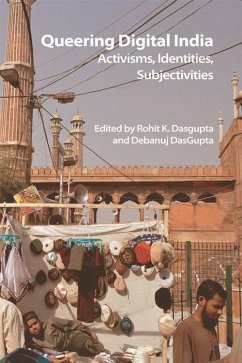'This collection gives voice to the identities, practices and cultures of LGBTQI people living in the world's biggest democracy, interrogating their engagements and entanglements with digital communication technologies. It provides a critical response to the hegemony of digital scholarship and forces those of us in the West to look beyond our own digital backyards.' Sharif Mowlabocus, Senior Lecturer in Digital Media, University of Sussex A critical and queer approach to digital technologies and their socio-political context in contemporary India This pioneering interdisciplinary collection looks critically at digital technologies and the roles they play within queer lives in today's India. The contributors work across a multi-sited range of new media analysing mainstream and alternative spaces such as Twitter, Youtube, Facebook, Grindr and gay men's health websites amongst others. These digital platforms are then situated within the contemporary socio-political conjuncture in India, offering a way of understanding queerness and Indian-ness in contemporary India. Queering in this book does not simply refer to a sexual category. Rather, queerness is a mode of dispossession through which certain bodies are rendered as bodies marked for discipline and regulation. This book takes on diverse strands of queer theory in order to name the ways neoliberalism, nationalism, digital technologies and movements for queer rights converge with each other within present day India. Rohit K. Dasgupta is a lecturer in Media at the Institute for Media and Creative Industries at Loughborough University, UK. Debanuj DasGupta is Assistant Professor of Geography and Women's, Gender, Sexuality Studies at the University of Connecticut, USA. Cover image: A View of the Jama Masjid, Delhi from the series, Tales of a City, commissioned by the Poole Festival of Photography, 2004 (c) Sunil Gupta Cover design: [EUP logo] edinburghuniversitypress.com ISBN 978-1-4744-2117-1 Barcode








